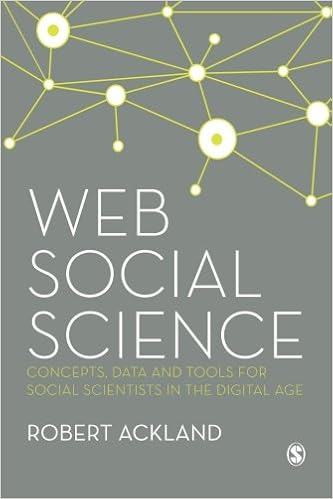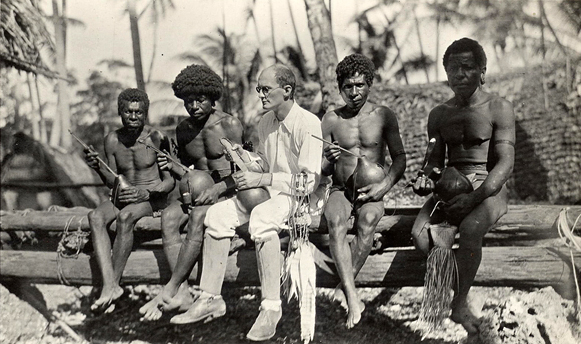Usually we tend to think of the WWW as a tool for research, and I’ll dive into some of the ways that I make use of specific tools to search and mine the web for resources into a later post, but today I wanted to share a bit about how the web can serve as a subject for research. Web social science is the next big thing, with regular sessions now appearing at many major academic society conferences.  If you want to get the big overview, I’d recommend you start with Robert Ackland’s recent book, Web Social Science: Concepts, Data and Tools for Social Scientists in the Digital Age (University users can click here to read the book online via the University of Edinburgh library). Ackland’s book is a terrific resource, covering both qualitative and quantitative modes of research and he covers a large range of tools from online surveys and focus groups, web content gathering and analysis, social media network analysis (which I’ll discuss in a future post), and online experimentation. For an author who is quite technical the book covers a very helpful range of ethical considerations, surveys a range of contemporary methodological literature, and he presents the domain of research involved in each of these which would be accessible to a readership that hasn’t done this kind of work before. A few years ago when I began doing web social science and social network analysis, I found Acklands book to be a terrific catalyst into the wider field of web studies. Continue reading
If you want to get the big overview, I’d recommend you start with Robert Ackland’s recent book, Web Social Science: Concepts, Data and Tools for Social Scientists in the Digital Age (University users can click here to read the book online via the University of Edinburgh library). Ackland’s book is a terrific resource, covering both qualitative and quantitative modes of research and he covers a large range of tools from online surveys and focus groups, web content gathering and analysis, social media network analysis (which I’ll discuss in a future post), and online experimentation. For an author who is quite technical the book covers a very helpful range of ethical considerations, surveys a range of contemporary methodological literature, and he presents the domain of research involved in each of these which would be accessible to a readership that hasn’t done this kind of work before. A few years ago when I began doing web social science and social network analysis, I found Acklands book to be a terrific catalyst into the wider field of web studies. Continue reading
Category: social science
The Digital Ethnographer


Over the past three years, I’ve been moonlighting as a social scientist doing ethnographic fieldwork in communities across Scotland from Callander to Orkney. Before heading out for the first time, I spent a few weeks assembling a toolkit for digital ethnography which I’ve been revising along the way. I thought I’d share a bit about what I’ve settled on using in case others are looking to upgrade their fieldwork toolkit. First, some caveats – I run Apple hardware but am passionate about Free and Open Source Software (FOSS) particularly because it is often cross-platform, so when I switch to linux for my work PC in a couple years, I’ll be able to run most of those tools without much trouble. So my goal was to avoid being proprietary and only go with what was strictly necessary. Here’s what I found: Continue reading
